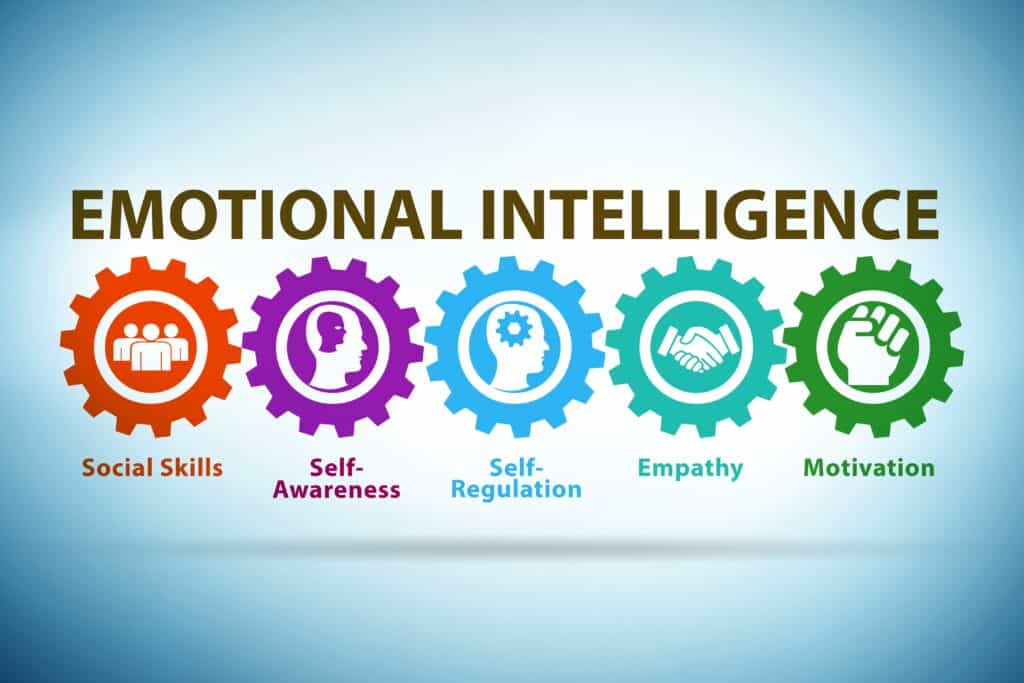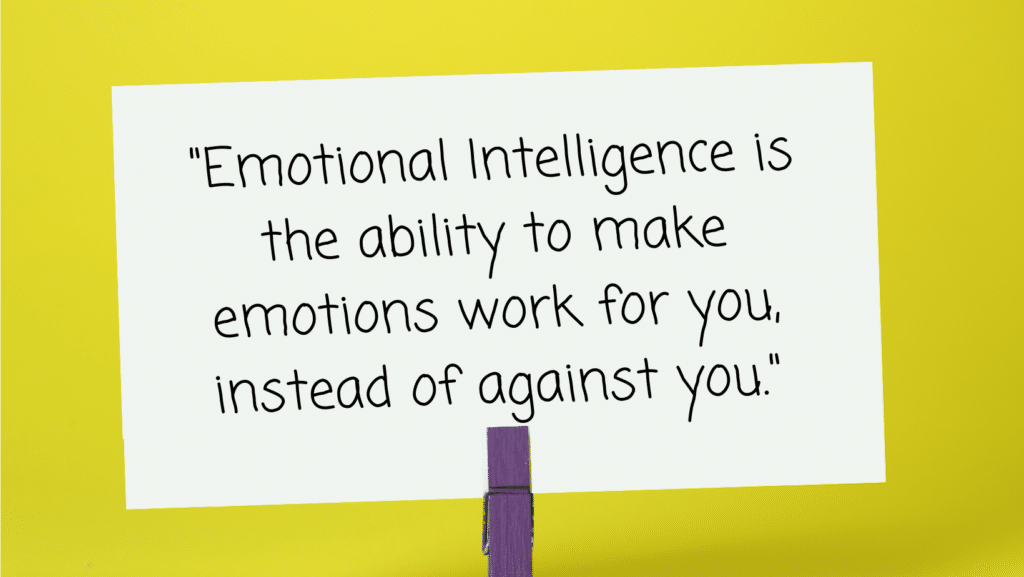Nurturing Emotional Intelligence – Jennifer Oaten

Have you ever wondered why some people seem to have unlimited success in their personal and professional lives? It could be because they have high levels of emotional intelligence. Are you one of these people?
Young people who develop high emotional intelligence (EI), otherwise known as EQ, are four times more likely to succeed in their future careers than those with high IQs alone. This is what parents want for their daughters and what educators want for their students.
How we perceive, evaluate, express and control our emotions can have a big impact on our day-to-day lives and the way we understand, interpret and respond to the emotions of others can significantly impact our connections to others. These qualities are part of emotional intelligence.
As parents and educators, we have the chance to foster these skills that pave the way for high emotional intelligence, leading to more fulfilled, successful and happy lives. Social connections and friendships are such a priority for young people, and EI qualities can have a positive or negative impact on these friendships.
People who have high Emotional Intelligence demonstrate the following qualities:
- Self-awareness: They recognise and identify their own emotions and accept that emotions are temporary.
- Self-regulation: They understand their trigger points and maintain control over their emotions.
- Social Skills: They are effective in their interactions with others, developing and maintaining connections.
- Empathy: They are attuned to show sensitivity to the emotions, experiences and perspectives of others.
- Motivation: They channel their emotions to keep working towards their goals.
These skills are not just abstract qualities; they are concrete tools that we can all use in our personal lives at school or work to be more successful.

EI and Learning
Recent studies have revealed a strong connection between high emotional intelligence and academic achievement. Students who possess strong emotional intelligence not only excel academically but also exhibit better focus, increased motivation, and enhanced stress management skills. Interestingly, emotional intelligence also plays a role in memory and retention, as emotions tied to information can aid long-term memory. In the classroom, EI becomes a cornerstone for a positive learning environment. It encourages students to engage deeply with their studies and interact harmoniously with each other.
High EI promotes learning because:
- By developing self-awareness, students begin to understand their own behaviour, thoughts and feelings towards learning. By understanding their strengths, weaknesses and learning styles, they become aware of how they can be more successful.
- Empathy allows for a more inclusive and supportive classroom where each student’s voice is heard and valued, and students feel free to ask questions and seek help.
- Self-regulation is key to managing stress and staying focused, even during challenging tasks or exams. The ability to self-regulate impacts study habits, concentration, and the ability to put things in perspective when things do not go as planned.
- Social skills enable students to work well in groups and resolve disagreements with respect and understanding. This is both important in the classroom but also in the wider community to build effective friendships.
- Motivation drives students to set and achieve their academic goals. Students can use positive emotions as a means of striving to do their best, reflecting and taking positive steps to improve. This also aids in developing resilience and the willingness to try again.
Cultivating these EI skills is not just about improving academic performance—it’s about preparing students for life, teaching them how to build and maintain positive relationships, and equipping them with the emotional tools they will use every day.

Developing EI at School
Santa Maria College takes a proactive stance in the personal development of our students by explicitly teaching Emotional Intelligence (EI) as part of our curriculum. We believe in nurturing not just the intellect but the whole person.
Our comprehensive Mental Health Strategy involves cultivating culture and values, expanding knowledge, developing skills and ensuring support.
Our bespoke wellbeing curriculum (Part of the Mental Health Strategy) spans Years 5 – 12, is meticulously crafted to focus on developing EI skills. The curriculum is broken down into the following components:
Self-Awareness: We teach our students to be introspective and understand their own emotions, needs, and perspectives.
Social Awareness: Our students learn to recognise and respond to the emotions of others with empathy and understanding.
Self-Management: We provide strategies for our students to effectively regulate their emotions and behaviours.
Social Management: Our students practice engaging with others effectively and respectfully.
Spirituality: We integrate spirituality, highlighting how relationships contribute to a sense of meaning and purpose in life.
This curriculum includes spirituality as a core element, setting us apart and emphasising our commitment to a holistic educational. We address specific needs at each year level, especially those that affect young women, and our program is dynamic, evolving with ongoing feedback to remain effective and relevant.
By teaching EI explicitly, we prepare our students for success beyond academics, ensuring they are well-equipped for the emotional demands of the future.
How Can Parents Promote EI?
The journey of fostering EI does not end in the classroom. Parents are essential partners in nurturing these qualities. Here are some practical ways you can support your child’s emotional growth:
- Model Emotional Management: Let your children see how you handle your own emotions. When you deal with stress or anger calmly, they learn to do the same. Know your triggers and work out ways to manage them, as your children will learn from you.
- Encourage Open Communication: Provide a safe space for your children to share their feelings and make sure they know their emotions are heard and valued. Encourage them to name their emotions, such as anger, sadness, and hurt. No emotions are bad emotions. They are all part of who we are.
- Teach Calming Techniques: Equip them with simple strategies, such as deep breathing and the power of pausing or counting, to help manage overwhelming feelings. Taking time to respond and think rationally before responding is vital.
- Foster Empathy: Encourage consideration of others’ feelings, emotions and perspectives, enhancing their ability to connect with and understand their family and peers. A key to this is listening.
- Social Skills: Emphasise taking turns, cooperation, and sportsmanship. Encourage a willingness to accept others’ perspectives even when they differ from their own.
- Cultivate Problem-Solving: Guide them to find solutions on their own, which builds resilience and independence and helps to reduce negative emotions that may lead to anxiety or stress. Tell them how capable they are and that they can solve any problem with time and thought.
By prioritising emotional intelligence at home and school, we are supporting our children’s educational journey and providing them with the skills they need for a successful life. These skills enable them to understand themselves and others more deeply, building stronger relationships and connections, which lead to a key human need, that of belonging.
Together, let us commit to nurturing these skills together, laying a strong foundation for our children’s futures.

Uplifting the Unvoiced: Caitlyn Goldney’s (2013) Inspiring Advocacy
Caitlyn Goldney (2013) is a passionate advocate dedicated to giving back to the community through her legal savoir faire.

Combating The Attention Span Crisis In Our Students – Jennifer Oaten
It is no secret that attention spans have been steadily declining, especially among younger generations growing up immersed in digital technology. The average person’s attention span when using a digital device has plummeted from around two and a half minutes back in 2004 to just 47 seconds on average today – a dramatic 66% decrease over the past two decades.

Weekly Wrap Up: Term 2, Week 2, 2024
Week 2 has come to an end! This Weekly Wrap Up features highlights from Scuba Diving Club, the Sisterhood Series, and Boarding ANZAC Service.
- Featured
Author: Santa Maria College
Santa Maria College is a vibrant girls school with a growing local presence and reputation. Our Mission is to educate young Mercy women who act with courage and compassion to enrich our world. Santa Maria College is located in Attadale in Western Australia, 16 km from the Perth CBD. We offer a Catholic education for girls in Years 5 – 12 and have 1300 students, including 152 boarders.






